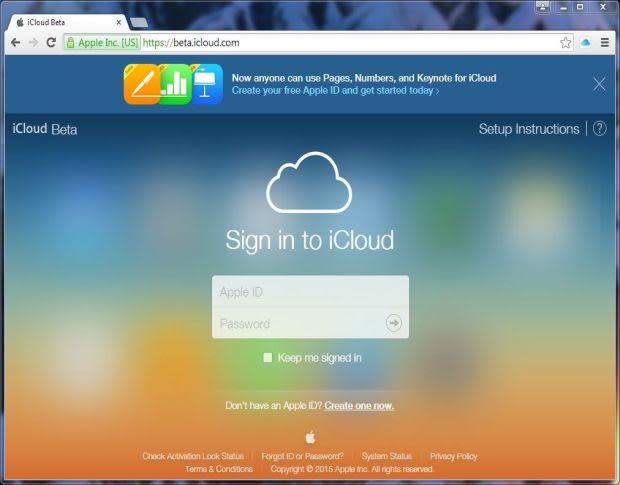Free iWork apps for Windows users aids Mac offices

Just last week, I observed how most factors previously impeding organizations from deploying and adopting Macs and iOS devices no longer apply. Windows incompatibilities, as a result, have become irrelevant and no longer prohibit organizations that wish to leverage OS X and iOS from deploying such technologies.
Then Apple introduced free iWork apps for Windows users. In other words, Windows users possessing no Apple devices can now use Apple's Pages word processing program, Numbers spreadsheet app, and Keynote presentation software free on the Web using iCloud.
Those unfamiliar with Apple's iCloud app initiative can think of it, as Jordan Golson wrote on TechRepublic last week, as "something of a Google Docs competitor, offering nearly full-featured versions of Pages, Numbers, and Keynote in a browser." As Golson noted, it's unlikely users (Golson mentions Google Docs users specifically, but he would have been within reason suggesting Microsoft Office 365 users, as well) will just flock to iWork as a result. But here's what Apple's making iWork apps free for Windows users does do -- the move makes it even easier for OS X and iOS shops to exchange and share iWork files with Windows users. In addition, iWork app availability on Windows machines assists Mac and iOS offices in accommodating the stubborn or persistent Windows users who, for whatever reason, don't just wish to move off Microsoft's platform.
While still in beta, extending iCloud apps to Windows users for free clearly escalates the tit-for-tat battle occurring between Microsoft and Apple. The days of locking customers into expensive software (and the corresponding renewal) for these basic productivity apps are coming to an end. Just as Apple began offering its OS upgrades for free, so too is Microsoft reportedly preparing to do the same for many users seeking to upgrade to Windows 10. A few years ago, Apple began offering the iWork apps free to Apple customers purchasing new Macs, iPhones and iPads. Microsoft responded by offering free Office apps for iOS users, as long as the users also purchase an Office 365 online subscription.
Now, Microsoft may be forced to revisit that strategy. As Google demonstrated from the start, compelling web-based office productivity tools can be offered for free. This strategy is helping Google and Apple grow, because it makes it easier for users to adopt their other products and services. Any doubts should be dispelled by Apple's offering the iCloud apps free to Windows users. In the end, organizations already using Apple technologies benefit, as now it's even easier for these firms to share files across platforms, while fueling the corresponding push to move documents, spreadsheets, photos, presentations, and more to Apple's cloud-based services.

